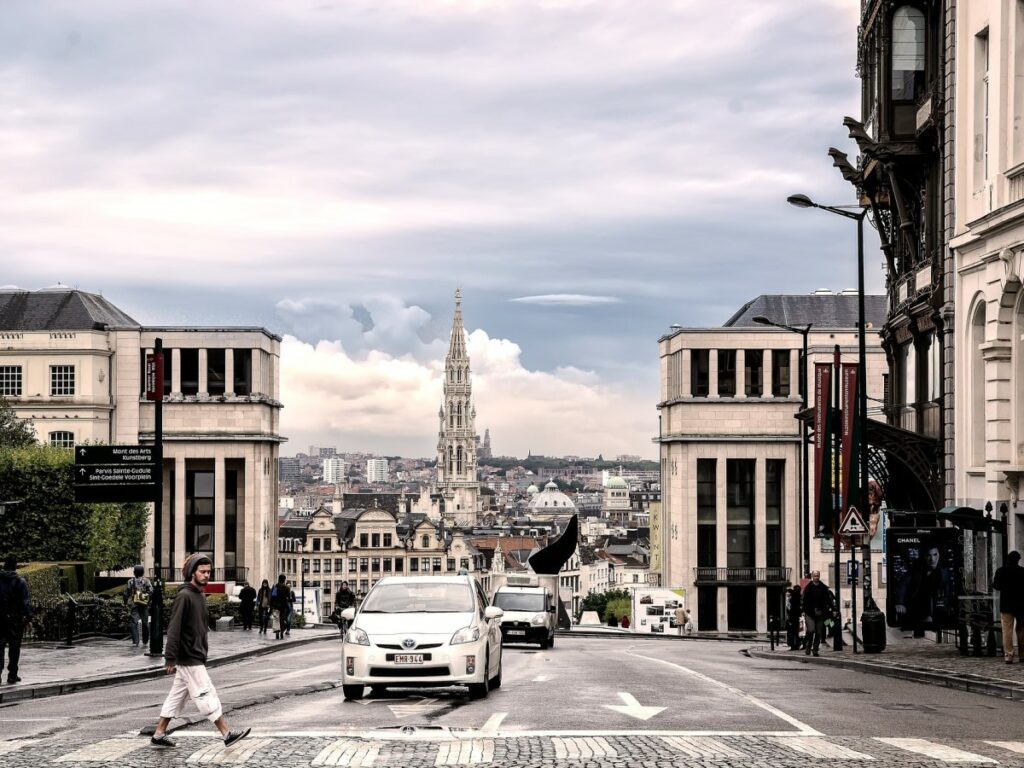It had been clear for months that there would be no Brussels government before the October 13 local elections. The Brussels Region level and municipal level are far too closely intertwined to see them completely separate.
The hope was that the October 13 ballot results would accelerate everything so that a government could finally be formed in Brussels as well. Unfortunately, that turned out to be vain hope on Oct. 14. If anything, the situation has become even more complex, which will make calls for reform of the Brussels Capital Region ever louder.
The local elections in the 19 municipalities of Brussels show a very diverse region, which also helps explain why the merger of the 19 municipalities, which is what all the Flemish parties want, is not at all as evident as it seems.
The results show a patchwork of different bastions of power and separate communities each trying to seize power in a small part of Brussels. One could easily argue, based on the October 13 results, that there is more political uniformity among the 69 municipalities of the province of Antwerp than the 19 Brussels municipalities.
The richer municipalities in southeastern “high Brussels” are the territory of the MR and what remains of Défi, while the poorer municipalities in the canal zone of “low Brussels” remain the power territory of the local PS potentates. In the northwest, in turn, a few municipalities are in the hands of Les Engagés.
Francophones
On the francophone side, we do see that the 3 francophone coalition partners MR, Les Engagés and PS also tie their fates together communally where possible, as for example in Brussels City. The outgoing coalition there lost its majority because Défi, among others, lost its 3 seats and Ecolo took another hit. However, this has very far-reaching consequences for the difficult government formation at the regional level.
Green/Ecolo used to govern in Brussels-City and Ixelles, but are now sidelined in both municipalities. This is another bitter pill to swallow for the Greens, who already had to swallow the postponement of the LEZ and now can't accomplish anything with a regional Good Move plan either. Brussels-City and Ixelles form the central axis through the entire region and cover about a quarter of the region. Not exactly a recipe for bringing the Greens back to the table quickly.
MR chief Bouchez had previously expressed his intention to make use of “constitutional creativity” if no progress was made on the Dutch-speaking side.
Case in point: in Brussels, each language group must form its own majority in order to achieve a fully-fledged government. On the Dutch-speaking side, no majority is yet in sight because the outgoing coalition of Groen, Vooruit and Open VLD has only 8 of the 17 Dutch-speaking seats left. However, forming a new majority without Groen (4 seats) seems political science fiction. The way Groen is now being sidelined everywhere may seem politically logical at the municipal level, but threatens to further reinforce the stalemate at the regional level.
Dutch-speaking coalition
The most obvious coalition along the Dutch-speaking side seems to be a combination of Groen with the 3 coalition partners of the Flemish government, N-VA, Vooruit and CD&V, which narrowly achieves 9 out of 17 seats. However, this requires a rapprochement between Groen and N-VA.
If the Greens had been needed for a coalition in Antwerp, this might have become a natural move in Brussels too, but it did not come to that. Some Greens would therefore prefer a coalition with Vooruit and Team Fouad Ahidar, but what exactly they stand to gain from such coalition is not clear either. In any case, it will not be a climate coalition either. Moreover, the French-speaking parties are scared to death of a coalition with Team Fouad Ahidar, who won 28 seats in five different municipalities in one fell swoop.
However, the N-VA is also not an obvious coalition partner for the French-speakers. Indeed, the political chess player in formateur De Wever will not hesitate to use the Brussels lever in the federal negotiations as well. After all, if the Dutch-speaking coalition in Brussels includes N-VA, Leisterh's (MR) position as “ministre-president” lies not only in the hands of Groen but also of N-VA. The latter party paradoxically also has nothing left to lose in Brussels since it lost all 6 city councillors in one fell swoop. A combination of French-speaking right-wing votes flowing back to the MR and possibly also a slightly lower turnout among Dutch-speakers under the influence of the abolition of compulsory voting in Flanders.
Future of Brussels
To make matters worse, the Brussels Region is virtually bankrupt. Both during the June and October campaigns, this was not a campaign issue at any time. Precisely because the Region has become such a patchwork of separate interests, nobody seems to want to see the big picture anymore, let alone take responsibility for it. All this puts us in a “perfect storm.”
Groen was brutally thrown under the bus by Bouchez in Brussels. For N-VA, in Brussels, nothing is particularly urgent. The breakthrough of Team Fouad Ahidar along the Dutch-speaking side, has paradoxically made N-VA quasi incontournable, despite losing a seat. Along the French-speaking side, each party is first and foremost trying to secure its own interests in its own municipal bastions, where that pesky double majority does not complicate their lives.
The future of the Brussels Region therefore does not look very bright. A reform is clearly imminent and in the coming weeks (and months?) the French-speaking parties will rightly scream blue murder that the Region is being held hostage if no majority can be found on the Dutch-speaking side. But no matter how loud they shout, it is their own responsibility that the Region is facing a deficit of almost 20% of revenues.
Moreover, anyone who wants to reform the Region needs a double federal majority. But why would a party like N-VA simply give up the constitutional Brussels lever it has? For anything less than far-reaching confederalism, De Wever will have no interest in it.
Thus, partly because of Bouchez's ill-considered bashing of the Greens in Brussels, the French speakers actually have their backs against the wall. For once, it is the Flemish who can look on quietly and patiently as “demandeurs de rien” Anyone who remembers how the French-speakers dealt with the Flemish demand to split BHV will not be inclined to feel much compassion for the French-speakers.
And Brussels? Brussels is unfortunately suffering the fate of a teenage child in a loveless and failed marriage. It suffers lonely as long as the agonizingly slow process of separation between father Flanders and mother Wallonia has not taken place.
It no longer receives pocket money from either father or mother. Father has become very indifferent and mother is in debt. In the case of a full divorce, it has no desire to live with father, who shows no love, but neither with mother, who is stressed by lack of money and already has enough problems on her mind.
To cover up the trauma, Brussels indulges in megalomaniacal waste of money to numb the pain. Unfortunately for Brussels, it has really run out of money now and is unable to make money itself. Are there any political family therapists in the room?


